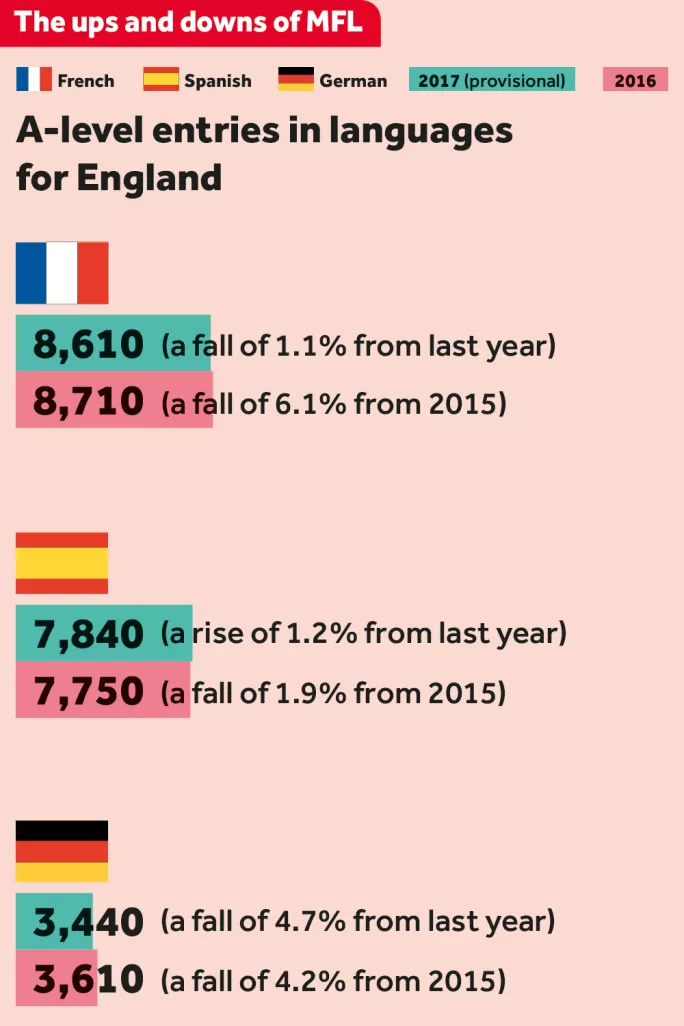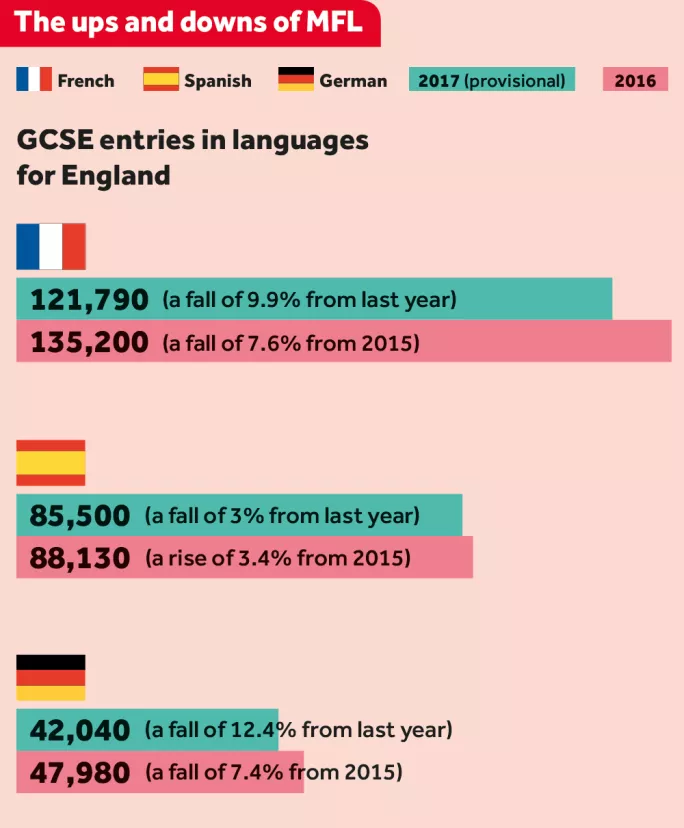The number of top grades awarded in modern foreign language A levels is likely to increase this summer, after a change brought in by Ofqual to help non-native speakers.
Exam boards have been asked to increase the proportion of students expected to achieve a grade A and above by one percentage point for French, German and Spanish A levels.
The exam regulator decided to intervene after carrying out research that showed native speakers were far more likely to achieve A* or A grades than non-native speakers.
If the ability of this year’s cohort is consistent with previous years, the uplift will be applied to the three A-level subjects.
However, relatively few candidates look set to benefit: a Tes analysis of last year’s A-level results suggests that an adjustment last summer would have resulted in around 200 extra A and A* grades being awarded.
The move from Ofqual has been widely welcomed across the sector, but headteacher organisations argue that it should not be the last word in solving what they see as a long-standing problem.
‘A vicious circle’
“We welcome any change that will deal with what we call ‘harsh grading’ of modern languages and one of the factors that impacts on the grading is native speakers,” says Malcolm Trobe, deputy general secretary of the Association of School and College Leaders.
He adds: “It’s still more difficult to get high grades in modern languages than in other subjects. This has implications for the take-up of languages. It is a vicious circle because if we are not producing enough modern linguists, then we’re not producing enough languages teachers.”
Last week, new analysis from the Press Association revealed that applications for degree courses linked to European languages have fallen by almost a quarter in the past five years.
The number of entries for French and German A level dropped by more than a quarter between 2011 and 2016 (French was down by 26.7 per cent and German was down by 25.6 per cent). At GCSE, there has also been a fall in French and German entries.
David Blow, headteacher at Ashcombe School in Surrey, who has worked on language grading for ASCL, believes that more still needs to be done.“They need to look at GCSE grading now. GCSE is the big anomaly and we really urgently need to address that,” he says.
Ofqual has invited the MFL community to submit evidence on whether a similar adjustment should be made at GCSE level.
@Eleanor_Busby


